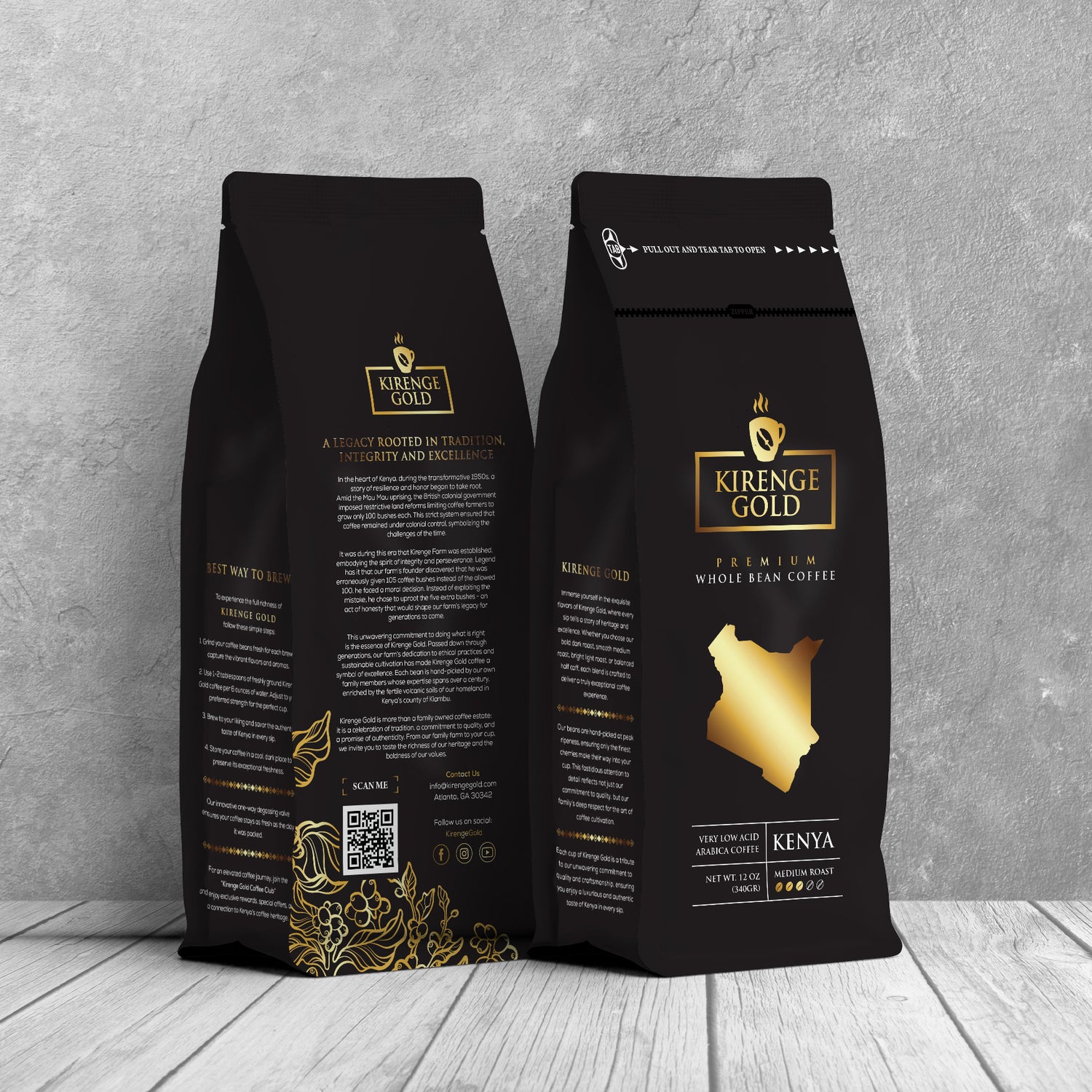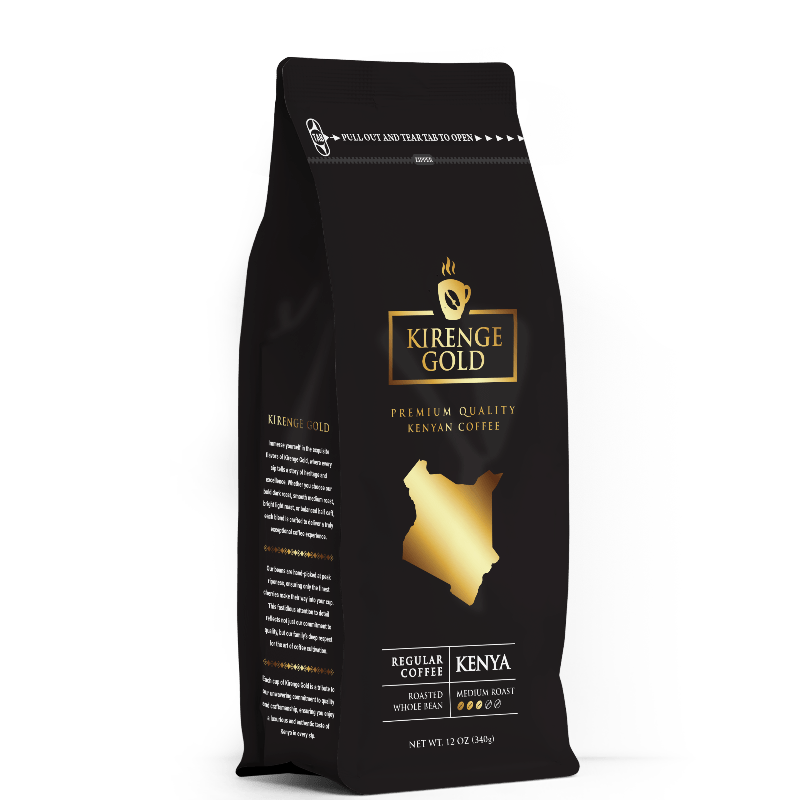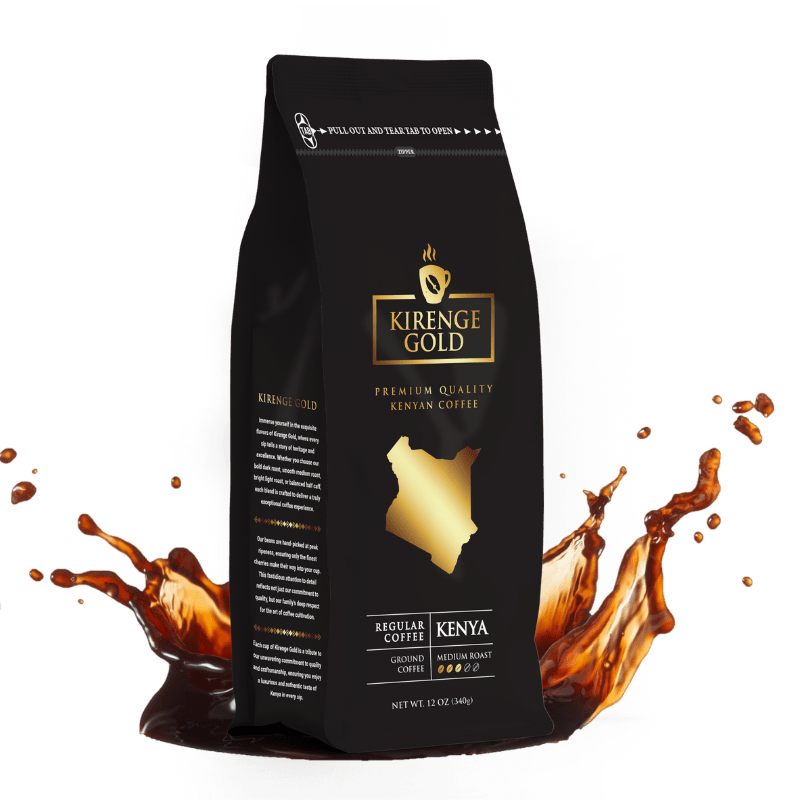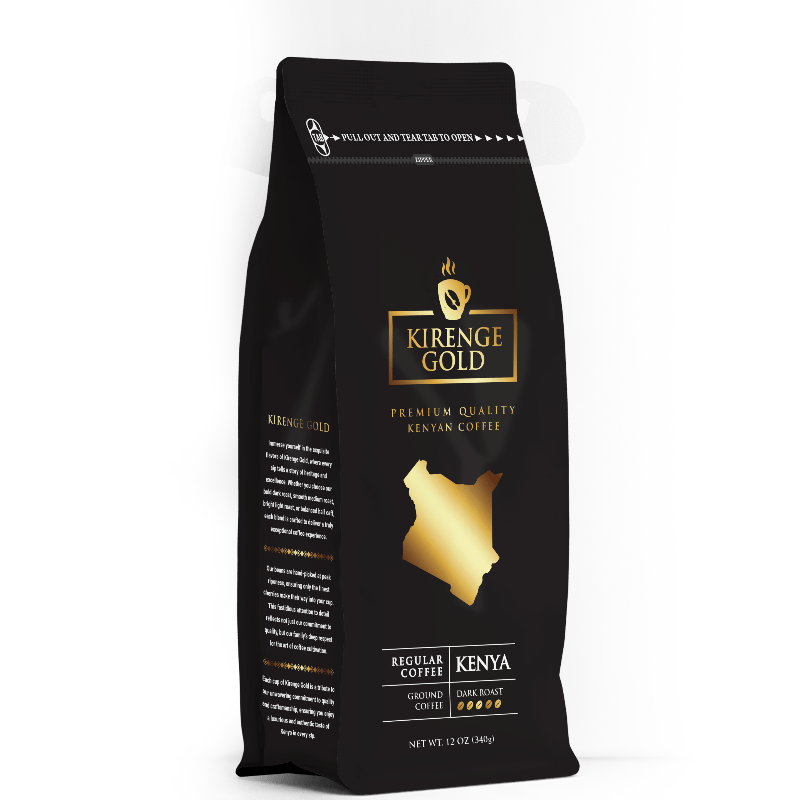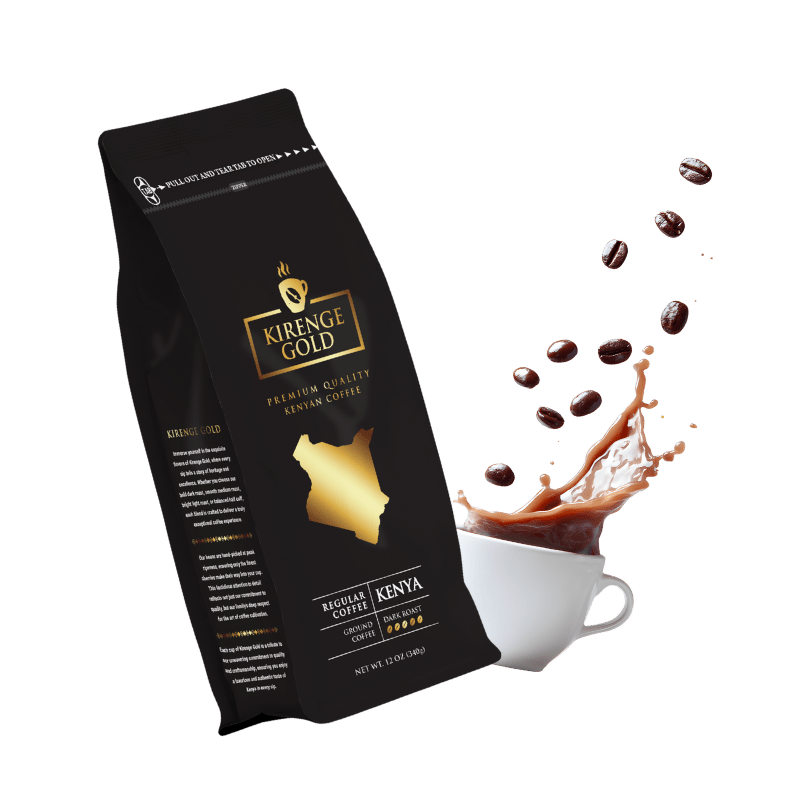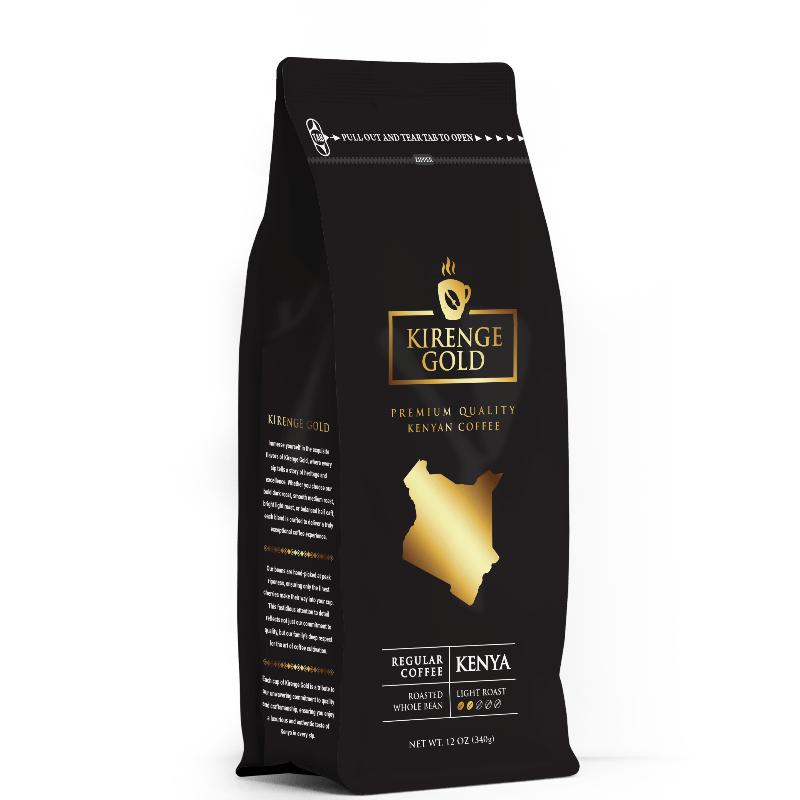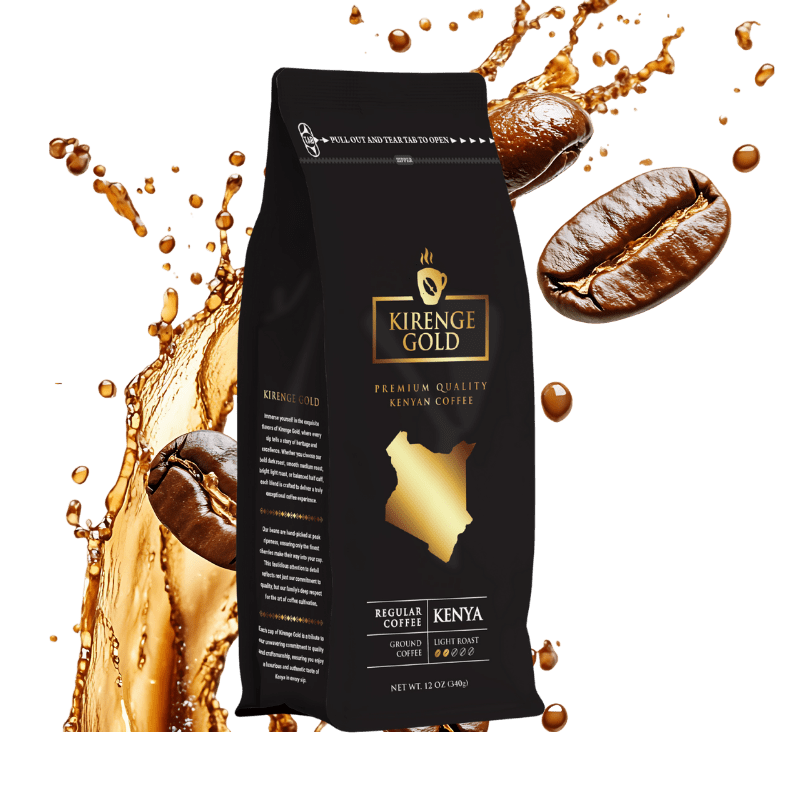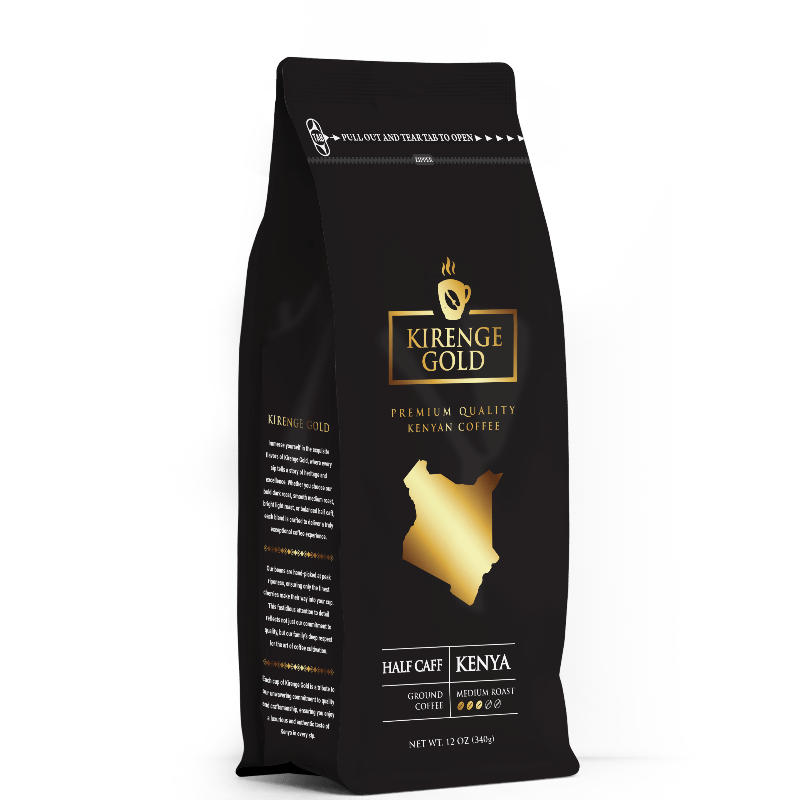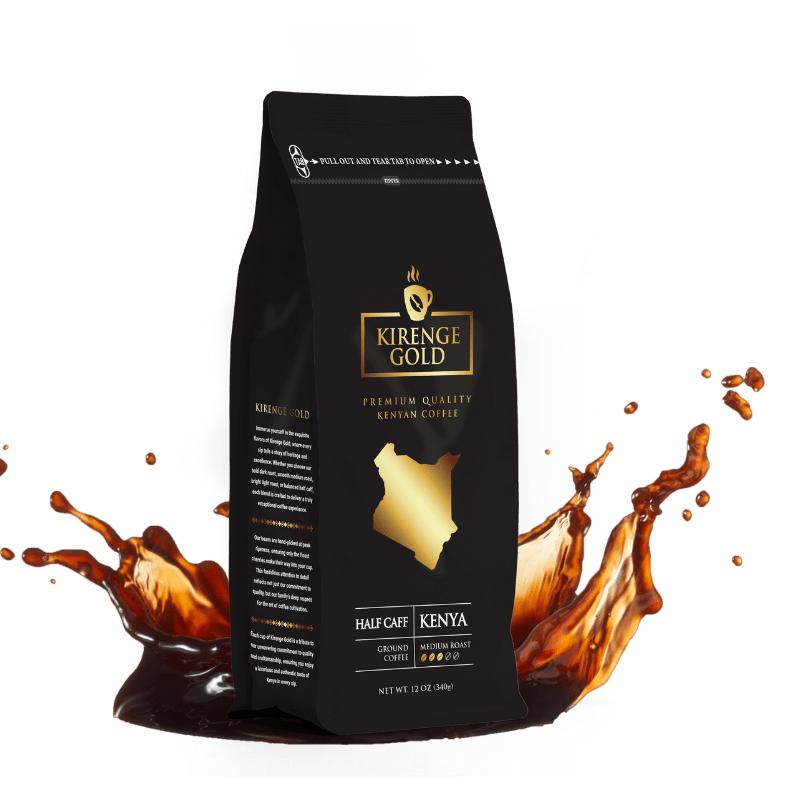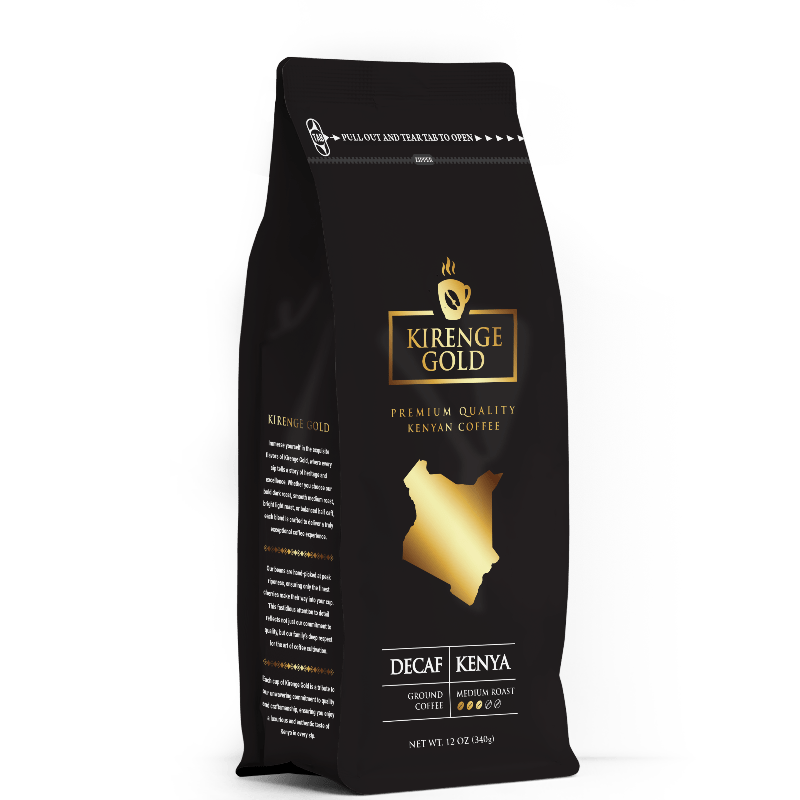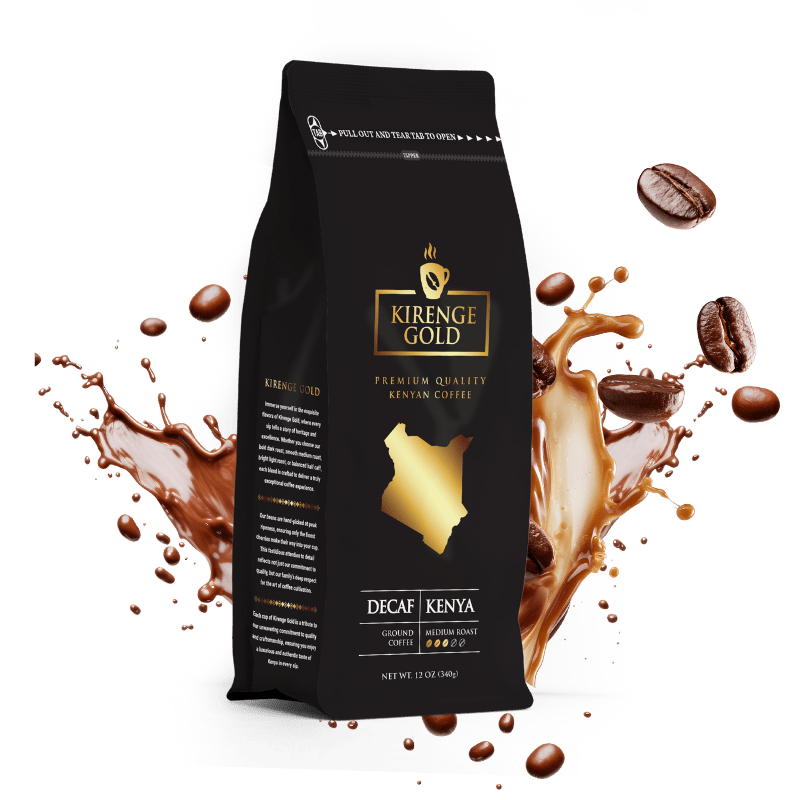
Single Origin vs Coffee Blends: Which Brew Brings Out the Best Flavor?
When shopping for coffee, you’ve probably come across terms like single origin and coffee blends. To the casual drinker, these might seem like marketing buzzwords, but in reality, they represent two very different approaches to coffee. The choice between them affects flavor, quality, price, and even how much you enjoy your morning cup.
At Kirenge Gold, we specialize in premium Kenyan coffee, which is a world-renowned single origin. But that doesn’t mean blends don’t have their place. In this guide, we’ll explore the differences between single-origin and blended coffee, their pros and cons, and why Kenyan coffee stands tall as one of the finest single origins in the world.
What Is Single Origin Coffee?
Single-origin coffee comes from a specific country, region, or farm. For example, a bag labeled Kenyan AA means all the beans inside are grown in Kenya, often in a particular region like Kiambu or Nyeri.
Key traits of single-origin coffee:
-
Unique flavors: The beans reflect the climate, soil, and altitude of their origin. This is known as terroir.
-
Traceability: You know exactly where your coffee came from.
-
Premium quality: Often associated with specialty coffee because it highlights the distinctiveness of a place.
Think of single-origin coffee like fine wine. Just as a bottle of Bordeaux has a unique profile compared to Napa Valley wine, Kenyan coffee carries flavors you won’t find in beans from Colombia or Brazil.
What Is a Coffee Blend?
A blend is a mixture of beans from different regions or even different countries. Roasters combine them to create a flavor profile that is balanced, consistent, and appealing to a wider audience.
Why blends are popular:
-
Consistency: Cafés can offer the same taste year-round, even if seasons or harvests change.
-
Balance: Roasters can combine a bold Brazilian bean with a fruity Ethiopian one to get the best of both worlds.
-
Accessibility: Blends are often more affordable and available in supermarkets.
Blends are like a chef’s recipe. By combining different ingredients, roasters create a cup that is smooth and reliable — but sometimes at the cost of uniqueness.
Flavor Profiles: Distinct vs Harmonized
-
Single Origin Coffee:
Each cup tells a story of its land. For example, Kenyan single-origin coffee is famous for its wine-like acidity, berry notes, and citrus brightness. No two harvests are exactly alike — and that’s part of the adventure. -
Blends:
Blends aim for harmony. They balance bitterness with sweetness, body with acidity. A blend may not surprise you, but it also won’t let you down. It’s consistent, but less distinctive.
Takeaway: Single-origin is best for coffee lovers who want to explore unique flavors. Blends are best for everyday drinkers who prefer familiarity.

Learn more about pour-over coffee
Price and Value
-
Single Origin: More expensive because it often comes from smaller farms, requires careful processing, and is produced in smaller quantities. The cost reflects its premium, traceable nature.
-
Blends: Cheaper because beans are sourced from multiple regions, often in bulk. They provide a reliable cup without breaking the bank.
Traceability and Ethics
-
Single Origin: High transparency. You can trace the beans back to a specific region or cooperative. This appeals to consumers who care about sustainability and fair trade.
-
Blends: Harder to trace. Because beans come from multiple places, it’s difficult to know the exact origin or the farming practices behind them.
If you want to support small farmers and ethical sourcing, single-origin Kenyan coffee is an excellent choice.
🇰🇪 Why Kenyan Coffee Shines as a Single Origin
Kenya is considered one of the gold standards of single-origin coffee, and here’s why:
-
Altitude: Grown at 1,500–2,100 meters above sea level, Kenyan coffee develops complex sugars and acids, resulting in bright, fruity flavors.
-
Soil: Volcanic soil adds rich minerals, enhancing bean quality.
-
Processing: Most Kenyan coffee is wet-processed (washed), giving it a clean, crisp taste.
-
Grading: Beans are carefully sorted, with Kenyan AA considered the highest grade for size, quality, and flavor.
This level of detail and care is why coffee connoisseurs worldwide seek out Premium Kenyan Coffee.
Which One Should You Choose?
-
Choose Single Origin If:
-
You’re a coffee enthusiast who enjoys exploring different flavor notes.
-
You value traceability and sustainability.
-
You want a premium experience, like tasting Kenyan AA coffee.
-
-
Choose Blends If:
-
You want a reliable, consistent cup every morning.
-
You’re looking for affordability.
-
You enjoy a smoother, balanced flavor profile.
-
👉 In short: Blends are dependable, but single origin is unforgettable.
Quick Comparison Table
| Feature | Single Origin Coffee | Coffee Blends |
|---|---|---|
| Flavor | Unique, terroir-driven | Balanced, consistent |
| Price | Higher (premium) | Lower (budget-friendly) |
| Traceability | High (specific region/farm) | Low (mixed sources) |
| Availability | Seasonal, limited | Year-round, stable |
| Best For | Enthusiasts, specialty brews | Everyday drinkers, cafés |
FAQs
Q: Is single origin coffee always better than blends?
Not always. It depends on preference. Single origin is best for unique flavors; blends are great for consistency.
Q: Why is single-origin more expensive?
Because it’s traceable, limited in supply, and often hand-picked. Premium beans like Kenyan AA are carefully graded for quality.
Q: Can blends include Kenyan coffee?
Yes — Kenyan beans are sometimes blended with others to enhance acidity or fruitiness. However, blends rarely capture the full spectrum of flavors that single-origin Kenyan coffee delivers.
Q: Do roasters prefer single origin or blends?
Specialty roasters often champion single origin because it tells a story and showcases craftsmanship. Commercial roasters lean toward blends for consistency.
Why Premium Kenyan Coffee Stands Out
Both single-origin and blends have their merits, but if you’re looking for a truly premium experience, single-origin is unmatched. Each sip reflects the soil, climate, and care of its homeland. And when it comes to single origin, few coffees rival the brightness, complexity, and elegance of Kenyan AA Arabica beans.
At Kirenge Gold, we celebrate this tradition by offering Premium Kenyan Coffee, hand-picked from our high-altitude farms and roasted fresh to highlight its unique profile.
👉 Shop Our Premium Kenyan Single Origin Coffee today and taste the authentic flavors of Kenya — bold, bright, and unforgettable.
Share

